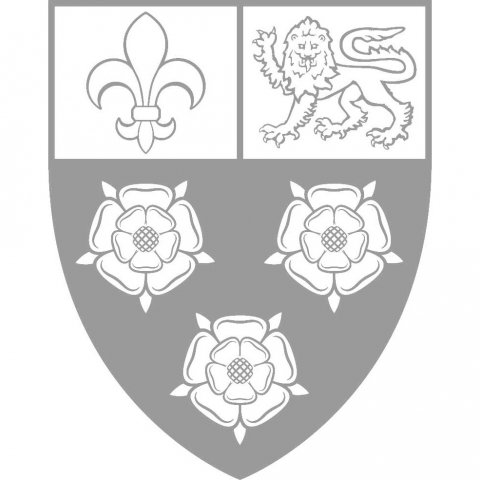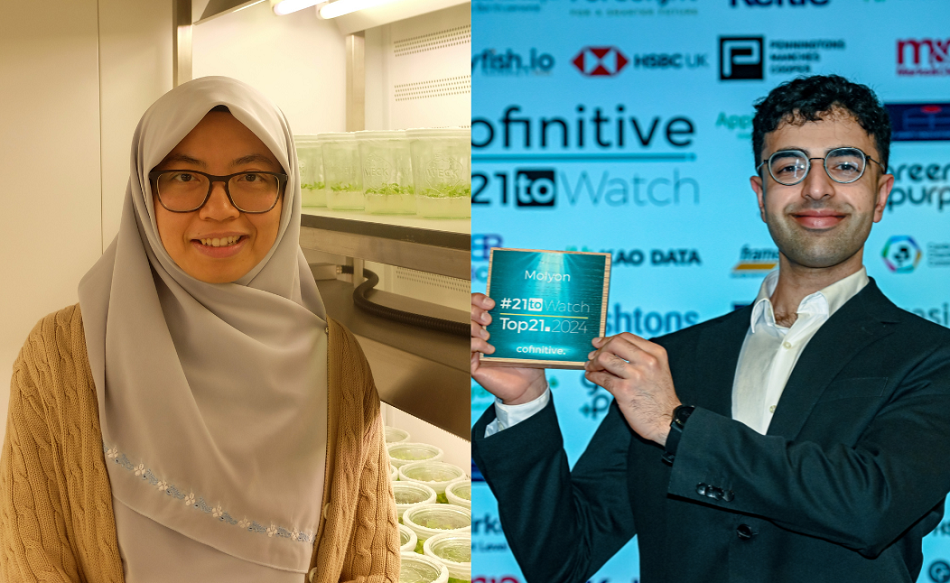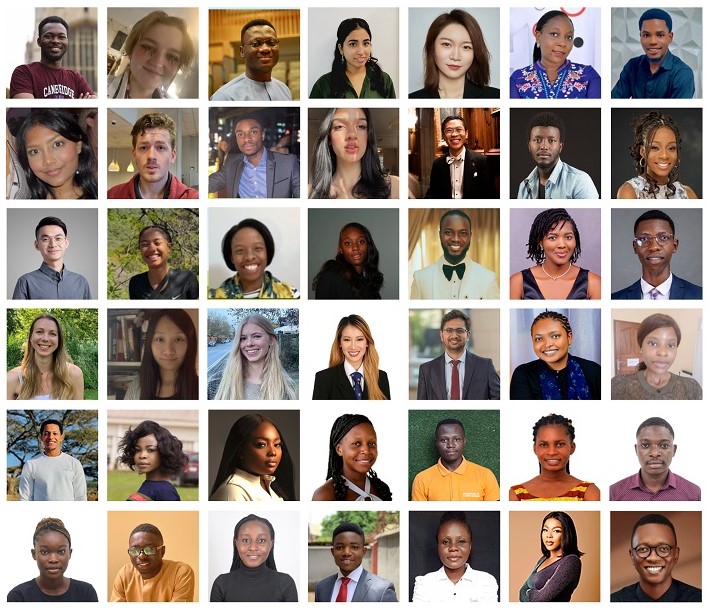2023 Competition
First place: La Huerta De Elisa
La Huerta de Elisa (Elisa’s Orchard), founded by Roxana Antohi (KC 2011), is an enterprise dedicated to combating the child obesity pandemic in Latin America caused by the consumption of ultra-processed foods. Its mission is to transform child nutrition by providing fresh, locally sourced, and nutritious meals. Through their initiative, they aim to instil healthy eating habits, promote well-being, and create a positive social impact on the lives of millions of children across the region. Visit their website for more.
Second place: Arxax
Arxax is a B2B climate-tech startup building carbon intelligence solutions for measurement and reporting of carbon emission in the transport and logistics sector. Climate change and growing environmental concerns have led to global initiatives to control, decrease and eventually eradicate carbon emission across all sectors. These regulatory requirements have created a whole new compliance market of carbon measurement, reporting and accounting. Arxax's intelligent proprietary platform, H2LLO™ Smart, combines the power of Big Data and IoT connected technologies to provide an innovative carbon intelligence tool to meet the demand of this fast-growing carbon management software market. Visit their website here.
Third place: Sirene Chocolate
Sirene Chocolate is relocating their manufacturing operations to the same indigenous Q’eqchi Mayan community in Guatemala that introduced chocolate to Europeans over 500 years ago. By partnering with this exceptional farm community, Sirene models a transformative boost to this community's revenue, potentially reaching above 600%. This strategic collaboration will allow the community to export higher-value chocolate instead of the export of lower-value commodity cocoa beans.
Sirene’s commitment extends beyond financial gains. Unlike many companies that take advantage of "locally adjusted" low rates, Sirene is dedicated to fair compensation for the farmers, paying them European rates for their valuable work. This mutually beneficial arrangement will result in increased profitability for both the farmers and Sirene. Sirene takes to heart the words of John Maynard Keynes: “The businessman is only tolerable so long as his gains can be held to bear some relation to what, roughly and in some sense, his activities have contributed to society.” Sirene’s ultimate goal is to ignite a global transformation within the chocolate industry, an industry beset with unacceptable human rights abuses. The Sirene website has more.
2022 Competition
First place: Correcto
Correcto is a writing tool which uses artificial intelligence and machine learning to assist with spelling and grammar in the Spanish language. The software is being developed to work as an integrated keyboard on smartphones and it is hoped that the tool will enhance the employment prospects of those from Latin American countries with lower rates of literacy.
Award of Commendation: Cambridge Kinematics
Led by King's Member Jesús Arjona (KC 2016), Cambridge Kinematics aim to bring easy-to-use mechanical automation to the optics industry.
We would like to reiterate our thanks to the entire judging team for the valuable human-capital found within the King’s Entrepreneurship Prize ecosystem, the financial investment made and the ongoing strategic support. Cambridge Kinematics has a formative 12-18 months ahead of itself and the support of the Lyon’s Den will provide a solid foundation upon which to traverse the challenges of a hardware-based start-up. - Jesús Arjona (KC 2016)
2021 Competition
First place: Perfexia Health (DocMe®)
Presented by undergraduate student Mikka Alon (KC 2017), Perfexia Health have developed DocMe®, an API technology which can measure, monitor and help manage chronic conditions (such as hypertension) from a 15-second selfie. The technology, which makes use of computer vision and convolution neural networks, has been designed to enable remote consultations for patients without access to wearable devices – a particular problem during the pandemic.
More information can be found on their website
Second place: Caravaggio's Chair
Graduate students Stephane Crayton (KC 2014) and Shirley Lo (KC 2019) presented a design-based enterprise, working mostly with furniture. On receiving the award, Stephane said: “From start to finish, the King’s Entrepreneurship Prize pushed us to ask ourselves questions; we enjoyed particularly talking with the panel after presenting our business plan at the start of June. The award will enable us to take our first steps towards producing a catalogue at scale. We are extremely grateful and excited for the journey ahead, and look forward to sharing our progress with the King’s community over the coming years.”
2020 Competition
Joint first place: PoliValve
More than 1.3 million heart valve replacement procedures are undertaken globally each year. Rising geriatric population (83 million by 2050) and widespread rheumatic disease (33 million worldwide currently) will increase this need by 4-5 times by 2050. Current solutions for treating heart valve diseases consist in the implantation of biological or mechanical heart valve prostheses. However, existing biological devices feature poor durability (10-12 years) with structural failure, thrombosis, calcification and endocarditis, while mechanical devices exhibit poor hemocompatibility as they are made from thrombogenic materials, needing life-long anticoagulation.
To address these limitations, PoliValve aims at developing the next heart valve prosthesis generation. By mimicking the same mechanism present in the native tissue, our innovative polymeric prosthesis exhibits longer durability than biological prosthesis (30-year at bench testing). In addition, it does not require anticoagulation therapy, opposite to mechanical valves. What’s more, being amenable to inexpensive mass production techniques, our polymeric heart valve can be manufactured at a much cheaper price and with better quality control.
By combining excellent durability, hemocompatibility and simple manufacturing techniques our polymeric valve has therefore the potential to be the one-type-fit-all solution benefiting million of elderly/younger
Joint first place: Vira Health
Vira Health is creating an entirely new standard of care for menopause. Their app will help a woman manage the specific symptoms, such as insomnia, anxiety, depression, hot flushes, weight gain and incontinence, through tailored treatments. Our ambition is to delay the onset of chronic conditions like osteoporosis, cardiovascular disease and even dementia through personalised care.
After being joint winners of the KEP in 2020, Vira Health raised £1.5M in seed funding to launch their first product, the Stella personalised menopause app. Only a year later they raised £9.2 million for research and development towards the delivery of a complete care pathway for menopause treatment, and expansion to the United States.
Third place: Modern Synthesis
Modern Synthesis is a material innovation start up developing radically new sustainable materials for the fashion industry. Their first invention, “Microbial Weaving”, is a patented process for growing composite leather-like materials with higher strength than plastic synthetic leathers and zero hazardous chemical use or microplastic pollution.
Visit their website for further information.
2019 Competition
Joint first place: Asan
Asan, founded by Ira Guha (KC 2011), is a social enterprise that addresses poor menstrual hygiene in India. Asan plans to transform period care by distributing reusable menstrual cups, which are an affordable and eco-friendly period product made from silicone. It aims to improve public health, reduce anxiety, inconvenience and waste, subsequently impacting both the home and working lives of millions of Indian women. Find out more on Asan's website.
Joint first place: WaterScope
WaterScope, led by microbiologist Alexander Patto (KC 2012), has invented a cartridge-based bacterial testing system to combat the global challenge of contaminated drinking water. Find out more at WaterScope's website.
Winning the Entrepreneurship Prize allowed us to apply for the Innovate UK grant, which provides 70% of the funding needed but requires companies to bring in the rest. - Alex Patto (KC 2012)
Third place: Space Time Enterprises
SpaceTime Enterprises provided virtual and augmented reality (VR/AR) products developed using high-resolution, real-time space imagery generated from their own in-orbit assets. The SpaceTime team was lead by Kathryn O'Donnell (KC 1993).
2018 Competition
First place: Pumped Heat
At the time of the Competition, Pumped Heat offered a novel ultra-low cost method of electricity storage, called PH2O, that was suitable for long duration energy storage. The system was designed to store electricity for periods ranging from days to weeks, allowing it to manage the intermittency of wind and solar generation. The ultra-low cost meant that it would be cheaper to generate electricity using renewables, with PH2O for the periods when it is not windy or sunny, rather than using a fossil fuel power plant. It would drive the de-carbonisation of the electricity system without the need for government subsidies or increased electricity prices.
Second place: Farming Data
Farming Data, a tech startup founded by Cambridge PhD students and graduates with a vision of enabling smallholder farmers in East Africa to sell more, for more. The company aimed to tackle the challenge facing many small-scale farmers in low-income communities of selling and transporting their produce to better markets, as well as the challenge facing buyers in sourcing produce from a diversity of small-scale farmers. Among its team was King's PhD student Marcel Meyer.
Third place: Cambridge BioChip
Cambridge BioChip, a company combining microchip technology, physics, and biology to advance cancer care. The team was led by Dr Nuno Alves (KC 2010) and used a small implantable biologically coated chip to simultaneously test a panel of drugs for real-time efficacy within the tumour, providing clinicians with true confidence on what treatment strategies will work for their patients.
2017 Competition
First place: Echion Technologies
In 2018, a year after taking part in the KEP competition, Echion Technologies was included in the Forbes’ prestigious ‘30 Under 30 Europe’ industry list, comprising the most impressive young entrepreneurs that are ‘creating the products, methods and materials of tomorrow’. According to Forbes, Echion’s innovative technology would enable the next generation of lithium-ion batteries to hold more electricity and charge more quickly.



